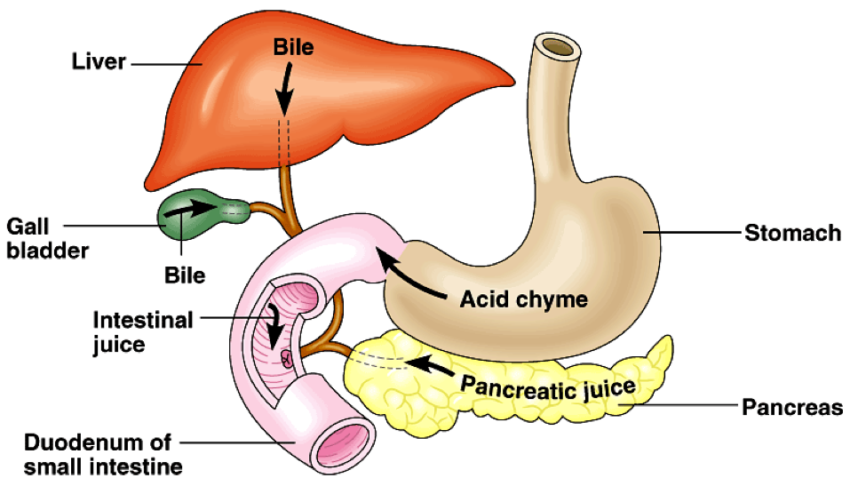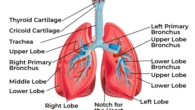
Important 5 Crucial Facts About Bile: The Body Fluid That Powers Digestion!
Bile: The Body Fluid Essential for Digestion and Health
Introduction
Important 5 Crucial Facts about Bile: The Body Fluid That Powers Digestion! Bile, a critical body fluid, plays an indispensable role in digestion and overall health. Produced by the liver, It is stored in the gallbladder and released into the small intestine to assist in the digestion of fats. This guide will provide an overview of bile’s functions, composition, history, FAQs, significance, and its importance to maintaining a healthy body.
What Is It?
It is a greenish-yellow fluid composed of water, bile salts, cholesterol, bilirubin, and electrolytes. Its primary role is to emulsify fats and aid in their digestion, enabling the body to absorb essential nutrients like vitamins A, D, E, and K.
Crucial facts about Bile: Functions in the Body
- Fat Digestion and Absorption: It breaks down large fat globules into smaller ones, allowing enzymes like lipase to work effectively.
- Excretion of Waste Products: It helps the body eliminate cholesterol and waste products such as bilirubin, a byproduct of red blood cell breakdown.
- Neutralizing Stomach Acid: By mixing with alkaline bile, the acidic chyme (food and stomach acid mixture) entering the small intestine becomes neutralized, protecting the intestinal lining.
- Maintaining Gut Health: It acids contribute to microbial balance in the gut, preventing infections and ensuring smooth digestion.
History of Understanding: Crucial Facts about Bile
The importance has been recognized for centuries. Ancient Greek physicians, such as Hippocrates, identified bile’s role in bodily “humors.” Modern science expanded on this, unveiling bile’s biochemical properties and its role in digestion and detoxification.
Important 5 Crucial Facts about Bile: The Body Fluid That Powers Digestion!
- Produced Continuously: The liver produces approximately 600-800 milliliters of bile daily.
- Stored in the Gallbladder: The gallbladder concentrates bile and releases it when fat-containing food enters the digestive tract.
- Crucial for Fat-Soluble Vitamins: Without bile, the body cannot absorb critical fat-soluble vitamins effectively.
- Recycling Mechanism: Most bile salts are reabsorbed in the intestine and returned to the liver for reuse, a process known as enterohepatic circulation.
- Indicator of Liver Health: Abnormal bile composition or flow can signal liver or gallbladder issues, such as jaundice or gallstones.
FAQs: Crucial facts about Bile
1. What foods stimulate bile production?
Fatty foods, bitter greens like kale and spinach, and citrus fruits stimulate bile secretion.
2. What happens if bile flow is blocked?
Blocked bile flow, known as cholestasis, can lead to jaundice, itching, and malabsorption of fats and vitamins.
3. Can you live without a gallbladder?
Yes. Without a gallbladder, bile flows directly from the liver to the small intestine, but dietary adjustments may be necessary.
4. How is bile related to gallstones?
Gallstones form when bile contains excess cholesterol or bilirubin, leading to crystallization.
5. Can bile affect stool color?
Yes. Bile pigments are responsible for the brown color of stool. Lack of bile can result in pale stools.
Significance in Society: Crucial Facts about Bile
- Understanding Digestive Disorders: Research on bile has led to better treatments for conditions like gallstones, acid reflux, and liver disease.
- Pharmaceutical Applications: Bile acids are used in medication formulations, including those that dissolve gallstones.
- Scientific Advancements: Studies on bile have advanced knowledge of gut microbiota and metabolic health.
Important Points to Note: Crucial Facts about Bile
- Healthy bile production requires a balanced diet, adequate hydration, and avoiding excessive alcohol intake.
- Persistent digestive issues may indicate bile-related disorders and warrant medical consultation.
- Gallbladder removal requires dietary adjustments to manage bile’s direct flow into the intestine.
Why Is Important?
Bile serves as the unsung hero of the digestive system, aiding in fat digestion, detoxification, and nutrient absorption. By understanding bile’s function and maintaining its health, individuals can prevent digestive issues and support overall wellness.
A Wish for Digestive Health
This guide aims to raise awareness about bile’s essential role. With a better understanding of its importance, let’s prioritize our digestive health for a balanced and vibrant life.









Here, you can access lots of casino slots from famous studios.
Visitors can try out traditional machines as well as modern video slots with stunning graphics and interactive gameplay.
If you’re just starting out or an experienced player, there’s a game that fits your style.
slot casino
All slot machines are available 24/7 and compatible with desktop computers and tablets alike.
You don’t need to install anything, so you can start playing instantly.
The interface is user-friendly, making it convenient to browse the collection.
Join the fun, and dive into the excitement of spinning reels!
This website, you can access a great variety of slot machines from leading developers.
Players can enjoy retro-style games as well as feature-packed games with high-quality visuals and bonus rounds.
Even if you’re new or an experienced player, there’s something for everyone.
casino games
All slot machines are instantly accessible round the clock and optimized for PCs and tablets alike.
You don’t need to install anything, so you can start playing instantly.
The interface is intuitive, making it convenient to explore new games.
Sign up today, and dive into the excitement of spinning reels!
在本站,您可以雇佣专门从事临时的危险工作的专家。
我们汇集大量经验丰富的任务执行者供您选择。
无论需要何种复杂情况,您都可以快速找到理想的帮手。
为了钱而下令谋杀
所有任务完成者均经过背景调查,保障您的机密信息。
任务平台注重效率,让您的个别项目更加无忧。
如果您需要服务详情,请随时咨询!
This website, you can access lots of casino slots from leading developers.
Visitors can experience classic slots as well as new-generation slots with high-quality visuals and exciting features.
Whether you’re a beginner or a casino enthusiast, there’s a game that fits your style.
slot casino
The games are instantly accessible round the clock and optimized for desktop computers and tablets alike.
No download is required, so you can start playing instantly.
Site navigation is intuitive, making it quick to find your favorite slot.
Join the fun, and discover the world of online slots!
At this page, you can discover top CS:GO gaming sites.
We list a wide range of wagering platforms centered around CS:GO.
Every website is thoroughly reviewed to provide safety.
cs go case websites
Whether you’re new to betting, you’ll easily find a platform that meets your expectations.
Our goal is to assist you to find proven CS:GO wagering platforms.
Dive into our list at your convenience and enhance your CS:GO betting experience!
Questa pagina offre il reclutamento di lavoratori per compiti delicati.
Gli utenti possono selezionare professionisti specializzati per operazioni isolate.
Gli operatori proposti sono selezionati con severi controlli.
ordina omicidio l’uccisione
Utilizzando il servizio è possibile ottenere informazioni dettagliate prima della selezione.
La fiducia resta al centro del nostro servizio.
Iniziate la ricerca oggi stesso per affrontare ogni sfida in sicurezza!
This website makes it possible to connect with professionals for temporary risky jobs.
Visitors are able to securely arrange assistance for specific requirements.
All listed individuals are qualified in managing complex operations.
hitman-assassin-killer.com
This service ensures private interactions between clients and contractors.
For those needing a quick solution, our service is ready to help.
List your task and match with a skilled worker in minutes!
Within this platform, you can discover a wide range virtual gambling platforms.
Searching for well-known titles or modern slots, you’ll find an option for every player.
All featured casinos checked thoroughly for trustworthiness, allowing users to gamble with confidence.
casino
Additionally, the site provides special rewards plus incentives to welcome beginners and loyal customers.
Due to simple access, locating a preferred platform happens in no time, making it convenient.
Keep informed on recent updates through regular check-ins, as fresh options appear consistently.
У нас вы можете найти подготовительные ресурсы для учеников.
Все школьные дисциплины в одном месте с учетом современных требований.
Готовьтесь к ЕГЭ и ОГЭ с использованием пробных вариантов.
https://smolensk-i.ru/partners/vred-ili-polza-ot-gdz-kak-vybrat-horoshij-reshebnik-i-izbezhat-problem_582104
Демонстрационные варианты упростят процесс обучения.
Все материалы бесплатны для комфортного использования.
Применяйте на уроках и достигайте отличных результатов.
¿Quieres códigos promocionales recientes de 1xBet? Aquí encontrarás bonificaciones únicas en apuestas deportivas .
La clave 1x_12121 garantiza a un bono de 6500 rublos para nuevos usuarios.
Para completar, utiliza 1XRUN200 y recibe un bono máximo de 32500 rublos .
https://dp.getbb.ru/viewtopic.php?f=3&t=2611
No te pierdas las promociones semanales para conseguir recompensas adicionales .
Los promocódigos listados funcionan al 100% para 2025 .
¡Aprovecha y multiplica tus ganancias con 1xBet !
Looking for special 1xBet promo codes ? Here is your best choice to unlock rewarding bonuses designed to boost your wagers.
Whether you’re a new user or an experienced player, the available promotions provides exclusive advantages across all bets.
Keep an eye on weekly promotions to multiply your betting experience .
https://rnmanagers.com/author/xbetfreespins/
Available vouchers are regularly verified to work seamlessly for current users.
Don’t miss out of limited-time opportunities to revolutionize your odds of winning with 1xBet.
На данном сайте доступен сервис “Глаз Бога”, что собрать данные о гражданине из открытых источников.
Сервис активно ищет по ФИО, используя доступные данные онлайн. Благодаря ему доступны пять пробивов и полный отчет по имени.
https://glazboga.net/
Обязательная сертификация в России критически важна для подтверждения качества потребителей, так как позволяет исключить опасной или некачественной продукции на рынок.
Процедуры проверки основаны на нормативных актах , таких как ФЗ № 184-ФЗ, и регулируют как отечественные товары, так и импортные аналоги .
сертификация Документальное подтверждение гарантирует, что продукция соответствует ГОСТам безопасности и не повлияет негативно людям и окружающей среде.
Также сертификация усиливает конкурентоспособность товаров на внутреннем рынке и способствует к экспорту.
Совершенствование системы сертификации соответствует современным стандартам, что укрепляет экономику в условиях технологических вызовов.
Здесь можно найти данные о любом человеке, в том числе подробные профили.
Реестры охватывают граждан разного возраста, статусов.
Данные агрегируются на основе публичных данных, что гарантирует надежность.
Поиск осуществляется по контактным данным, что обеспечивает работу эффективным.
глаз бога официальный бот
Дополнительно можно получить адреса и другая актуальные данные.
Все запросы выполняются в рамках законодательства, предотвращая разглашения.
Обратитесь к этому сайту, для поиска необходимую информацию без лишних усилий.
Нужно собрать данные о пользователе? Наш сервис поможет полный профиль в режиме реального времени .
Воспользуйтесь продвинутые инструменты для поиска цифровых следов в соцсетях .
Выясните контактные данные или интересы через систему мониторинга с гарантией точности .
глаз бога программа для поиска людей бесплатно
Система функционирует с соблюдением GDPR, используя только общедоступную информацию.
Закажите детализированную выжимку с историей аккаунтов и графиками активности .
Попробуйте проверенному решению для digital-расследований — точность гарантирована!
Весь азарт — в мелочах. Когда слот запускается мгновенно, когда не нужно сто раз подтверждать личность и ждать сутки на вывод — ты понимаешь, что попал в правильное место. Vodka Casino скачать на телефон оказалось простым действием, которое принесло кучу эмоций и реально крутые выигрыши. Мне понравилось, что всё продумано: от быстрых бонусов до стабильных зеркал. Даже когда сайт блокируют, не теряешь связь — приложение само находит рабочий доступ. Никаких лагов, никакой воды — всё по делу. Тут можно не просто прокрутить автомат, а реально включиться в игру и выиграть. И всё это без сложных условий и уловок. Простой интерфейс, честные выплаты и реальный шанс поднять банк — вот за что я уважаю эту платформу. А ещё здесь реально помогают, если что-то пошло не так. Не просто обещают, а делают.